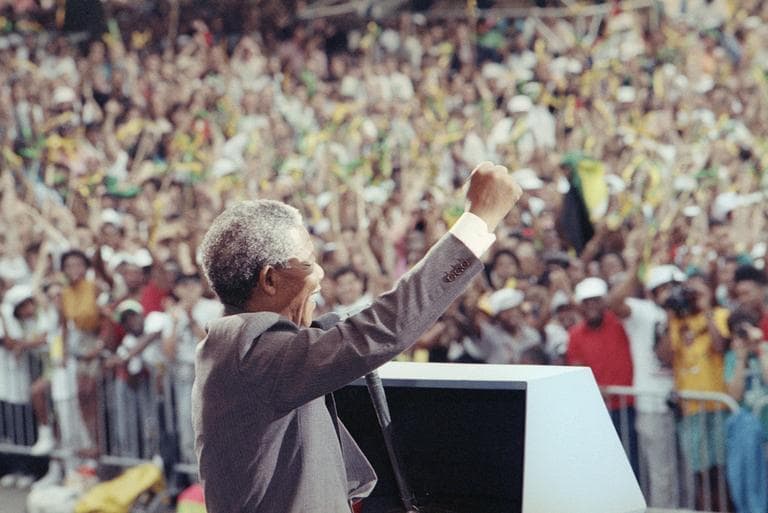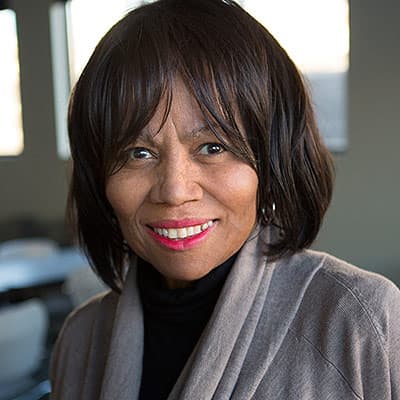Advertisement
Why Nelson Mandela Came To Boston In 1990

The world is remembering former South African President Nelson Mandela, who died Thursday at the age of 95. Bostonians are particularly remembering his visit here, soon after he was released from prison.
When Mandela visited, Margaret Burnham was a Boston-based leader in the Free South Africa/Free Mandela movement. She recounts that day: June 23, 1990.
"It was electric," Burnham said. "Everyone felt it was historic. We were living that history at that moment. We were sharing space with one of the world's greatest statesmen and peacemakers, perhaps one of the most unique leaders, certainly in the 20th century. And here he was, he was in our midst. He was both extraordinary and ordinary at the same time."
It was just one day in Boston. And the stops were brief. But the images were enduring, says Burnham, who was the first African-American woman appointed a judge in Massachusetts and is now a law professor at Northeastern University.
"He was all that we thought he would be when he left prison," she said. "He was full of humanity and grace and wisdom and peace — and as well a very practical politician."
The tour was twofold in purpose: first, to express gratitude to activists who'd supported the struggle against apartheid rule in South Africa. Massachusetts was the first state to withdraw its pension funds from companies that were doing business in South Africa.
"It was the beginning of getting other states and other large investors from ending their investments in businesses that were doing business in South Africa," said longtime state Rep. Byron Rushing, who was active in the anti-apartheid movement.
The second purpose of Mandela's U.S. tour was all business. He and other members of the African National Congress (ANC) had a new task: moving South Africa from white domination to a democratically elected government, Rushing says.
Advertisement
"And when you think about all the things that they had to do, they of course for years in South Africa, they were banned," Rushing said. "It was illegal to print anything that they said. In South Africa no one ever saw a picture of Mandela in a newspaper, ever."
"They were trying to raise money for certainly the election; these were men who had been in prison for 27, 30 years," said public relations executive Colette Phillips, who coordinated Mandela's Boston visit for the Free South Africa Movement.
"They had a movement that had no significant money, and if you're going to run for office, if you're going to mount a serious campaign, you needed to raise money," she said. "And where better to come? And Boston has a tremendous history."
The ANC's goal was to raise $1 million from each of the cities Mandela visited.
But Phillips says Mandela's visit produced an even bigger return for Boston.
"The day that Nelson Mandela came to Boston was the day I felt that it was almost like this shattering of a perception that has dogged Boston for years about being this very hostile and unwelcoming city for people of color," Phillips said. "Because it was a day that brought together people from every socioeconomic background and ethnicity who really wanted to come and see this international icon that was bigger than life."
Clearly, Boston held a special place in Mandela's heart, Burnham says.
"He said the example that Boston has been will always be a diamond in South Africa's struggle against apartheid," she said.
Burnham says Boston's connections nurtured during the anti-apartheid struggle still thrive here, continuing to build alliances with South Africa.
One organization, South Africa Partners, is planning a day of recognition and service for the United Nations-declared International Nelson Mandela Day. It is July 18, which would have been Mandela's 95th birthday.
This program aired on December 6, 2013.
